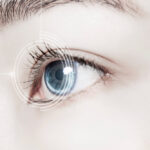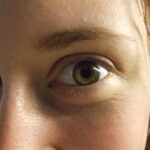Do Contact Lenses Damage Your Eyes? We (Debunk?) The Myths.

Many articles online talk about the benefits of wearing contact lenses, and some even encourage choosing them over glasses. But at the same time, other posts claim that contact lenses are harmful to your eyes and can even cause permanent blindness—especially for regular contact lens users.
Some of these claims are false, but some contain real risks that shouldn’t be ignored.
Like most things, contact lenses are safe when used correctly but dangerous when misused—especially colored contact lenses, which are often associated with eye infections and complications.
But does that mean you should avoid colored lenses? Not at all! You can still wear them safely, as long as you follow proper contact lens care.
In this article, we’ll debunk myths, highlight the real risks, and show you how to take care of your contact lenses properly to avoid infections and long-term eye damage.
Benefits and Risks of Wearing Contact Lenses
Benefits of Contact Lenses:
✔ Correct nearsightedness, farsightedness, astigmatism, and presbyopia
✔ Provide a wider field of vision than glasses
✔ More convenient for sports and physical activities
✔ Colored lenses allow for eye color enhancement
Risks of Contact Lenses:
❌ Higher risk of eye infections if not cleaned properly
❌ Corneal ulcers (open sores) from improper use
❌ Increased dry eye syndrome if not well-lubricated
❌ Possible allergic reactions to lens material or solution
By understanding the risks and following proper care routines, you can avoid these complications and enjoy the benefits of wearing contact lenses.
Common Contact Lens Problems
Even when worn correctly, contact lenses can cause issues. Here are some common problems to watch out for:
1. Eye Irritation & Redness
- Red or bloodshot eyes can result from lens deposits, bacteria, or dryness.
- Persistent redness could indicate an infection and should be checked by an eye doctor.
2. Burning Sensation
- A burning feeling in your eyes is often a sign of an eye infection or an allergic reaction.
- It may also be linked to pink eye (conjunctivitis) or keratitis (corneal inflammation).
3. Lack of Oxygen Supply to the Eye
- The cornea needs oxygen to stay healthy. Contact lenses reduce oxygen flow, especially if worn too long.
- Over time, this can lead to corneal ulcers, scarring, or even vision loss.
4. Dry Eyes
- Contact lenses can absorb moisture, making your eyes feel dry and itchy.
- This happens when the tear film (oil, water, and mucus layer) becomes unstable, reducing eye lubrication.
5. Light Sensitivity
- Infections, irritation, or corneal damage can make eyes sensitive to light.
- Light sensitivity can be painful and interfere with daily activities.
6. Blurred Vision
- Wearing damaged, expired, or poorly fitted lenses can lead to blurred vision.
- If your vision is suddenly blurry, remove your lenses and check with an eye doctor.
7. Eye Discharge
- Yellow or green discharge is a sign of infection and requires immediate medical attention.
- If you experience excessive tearing or mucus, stop using your lenses and see an eye doctor.
Factors That Can Damage Your Eyes
Several factors increase the risk of eye damage from contact lenses:
- Poor Lens Hygiene – Not cleaning or storing lenses properly leads to bacterial infections.
- Overwearing Lenses – Using expired or extended-wear lenses beyond their limit reduces oxygen supply.
- Sleeping in Contact Lenses – Increases the risk of infections, dryness, and corneal ulcers.
- Wearing the Wrong Lens Type – Some materials cause irritation or allergic reactions.
How to Avoid Problems with Contact Lenses
While the risks sound serious, following these simple steps can prevent most contact lens complications:
1. Let Your Eyes Breathe
- Avoid wearing lenses all day long—take breaks when possible.
- Choose modern silicone hydrogel lenses, which allow more oxygen flow than traditional lenses.
2. Keep Your Lenses & Case Clean
- Use only approved lens solutions—never tap water or saliva.
- Replace your lens case every three months to prevent contamination.
3. Follow Your Lens Replacement Schedule
- Lenses have expiration dates—never use them beyond the recommended time.
- Some lenses are daily, biweekly, or monthly wear—stick to the schedule your eye doctor recommends.
4. Don’t Sleep in Contact Lenses (Unless Designed for It)
- Sleeping in regular lenses can cause severe dryness and infections.
- If you need overnight lenses, consult your eye doctor about extended-wear lenses.
5. Never Share Contact Lenses
- Sharing lenses spreads bacteria and viruses, leading to serious infections.
- Many costume/cosmetic lenses sold online are unsafe and not FDA-approved.
6. Visit an Eye Doctor if Problems Persist
- If you notice redness, irritation, discharge, or blurry vision, remove your lenses and seek medical attention immediately.
Proper Contact Lens Care and Maintenance
Proper contact lens care and maintenance are essential to prevent eye damage and ensure the longevity of your lenses. Here are some practical tips to help you take care of your contact lenses:
- Clean and Disinfect Regularly: Always use a contact lens cleaning solution to clean and disinfect your lenses. Avoid using tap water, as it can introduce harmful bacteria. Replace the cleaning solution regularly to ensure its effectiveness.
- Store Lenses Properly: Use a clean, dry contact lens storage case to store your lenses when not in use. Replace the case every few months to prevent contamination.
- Avoid Sharing Lenses: Never share your contact lenses with others, as this can increase the risk of eye infections and other complications.
- Follow Usage Instructions: Adhere to the instructions provided by your eye doctor or the contact lens manufacturer. This includes following the recommended wearing schedule and replacement timeline.
- Get Regular Eye Exams: Regular eye exams are crucial for detecting any potential eye problems or complications from contact lens use. Your eye doctor can assess your eye health and ensure your lenses are fitting correctly.
By following these tips and practicing proper contact lens care, you can enjoy the benefits of contact lenses while minimizing the risks of eye infections and other issues.
If there are still problems… (visit the eye doctor)
When you feel an itch, itching, or itchy sensation, do not just wait until it goes away. Take off your lens and call your eye doctor immediately. Infections will only worsen over time. An ocular ulcer needs treatment, the same goes for red eyes, blurred vision, and even eye discharge. So if you wish to be safe with contact lens use, contact a qualified eye doctor immediately. They will assess your eye fit to determine if they are suitable for contact lenses. The lens material, such as hydrogel or rigid gas permeable (RGP), plays a significant role in comfort and oxygen transmission, which your eye doctor will consider during the assessment.
Frequently Asked Questions
Is it safe to wear contact lenses every day?
Yes, but only if you follow proper care guidelines. Daily wear lenses should be removed and cleaned each night to avoid complications.
Can contact lenses make my eyesight worse?
No, contact lenses do not damage vision when used correctly. However, overuse or poor hygiene can cause temporary or permanent eye problems.
Are contact lenses safe for my eyes?
Yes, when used properly. However, improper use can lead to keratitis, corneal ulcers, and infections. Proper cleaning and care are essential.
Conclusion
From the above, it can be seen that contacts are often dangerous when used improperly. But costume contacts are safe to wear if you see your doctor. Though, contact lens wear increases your chances of getting infections. Contact lens wearers should follow proper care guidelines and consult their eye doctor regularly to ensure optimal eye health. Do not stay asleep. Clean it every day; change it as frequently as you should, maintain it the proper way, and get all the correct contact lenses.






